NotebookLM has been around since July 2023, but it's still fairly new to most users. But NotebookLM being relatively new or having a smaller audience doesn't translate into a lack of competition.
Between when I first stumbled upon NotebookLM and today, I've mostly been loyal to it without really exploring what else is out there. I did try a bunch of similar tools before I settled on NotebookLM, yet none of them came even close to the experience it delivers.
However, the number of NotebookLM competitors is increasing by the day, and I figured it was finally time to give them a real shot.
Nouswise
The tool that really wants to be NotebookLM
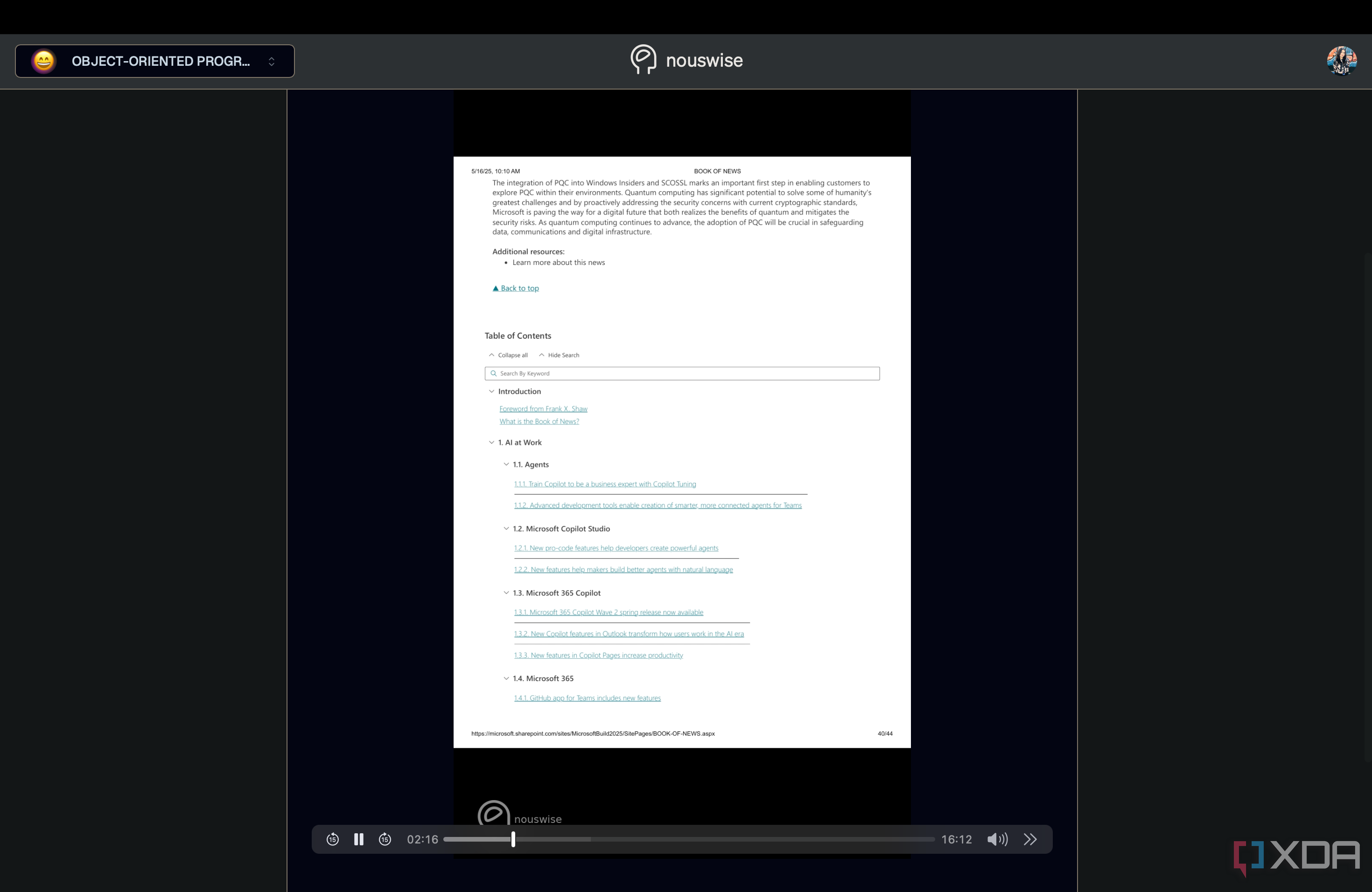
Interestingly, when you search for NotebookLM alternatives, the top results are often note-taking tools like Notion, Evernote, or Obsidian. In reality, NotebookLM is far from a "note-taking tool." The tool isn't designed to replace your note-taking apps. Instead, NotebookLM is meant to enhance how you use them.
After searching for tools that do just that, I came across Nouswise. What makes NotebookLM stand out from other AI tools is its source-grounded nature, meaning it only references material you've uploaded to a certain notebook. This helps cut down on hallucinations, and you don't have to spend time vetting information yourself.
Nouswise is source-grounded as well, and once its API processes the sources you upload, it claims to "always answer from the sources in focus." Both tools provide citations, and hovering over them reveals where it references the text from.
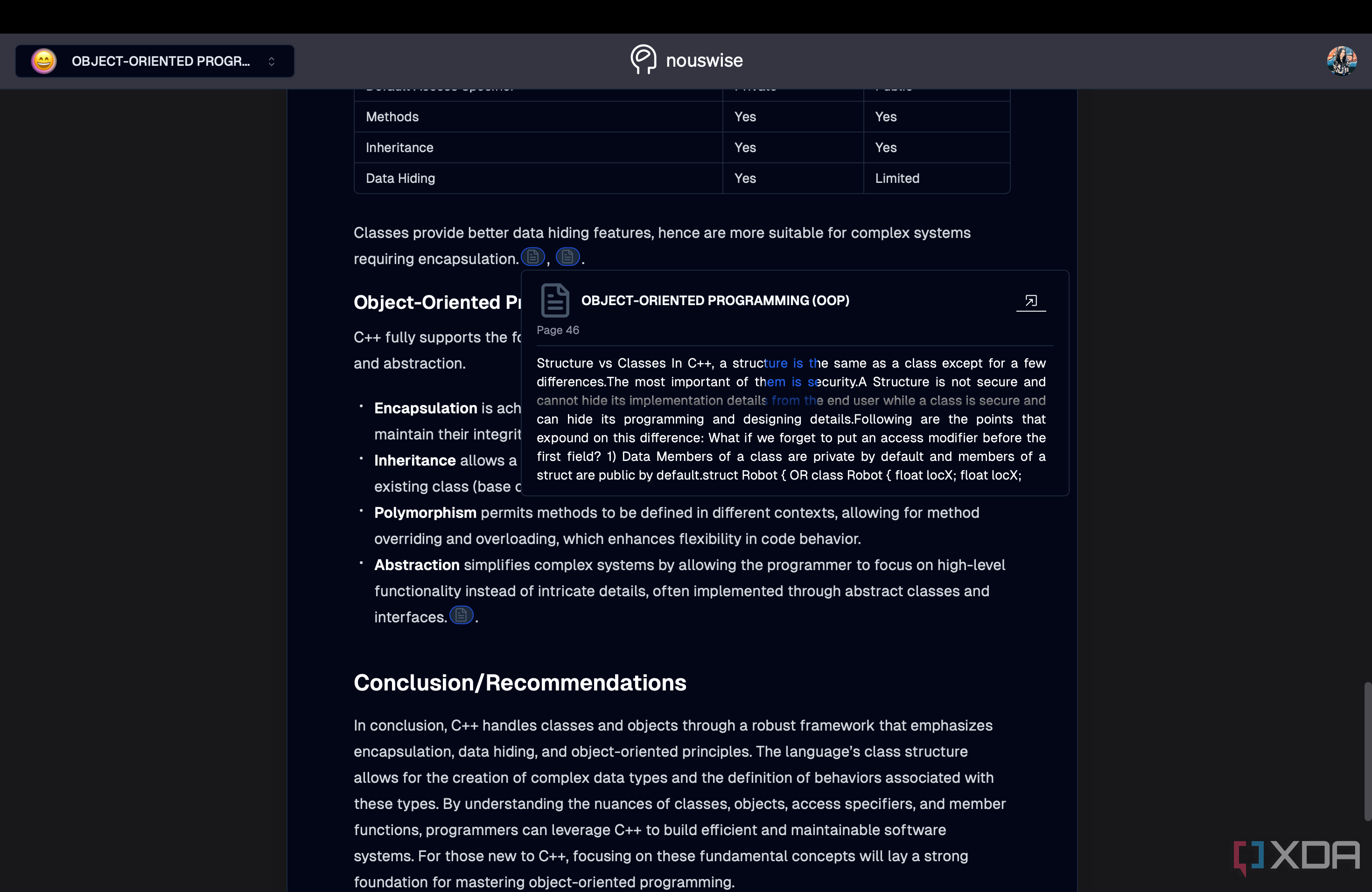
Nouswise has an Audio Overview-like feature called Visual Podcast, where two hosts recap your sources. The Visual Podcast mode currently only supports PDF files, whereas there's no such limitation in NotebookLM, and an Audio Overview can even discuss YouTube videos. Once you upload your PDF(s) to Nouswise, you'll need to prompt it with what your source is about, which is an extra step I'm not a fan of. Then, you need to wait for it to generate your podcast (which can take up to ten minutes).
After all that waiting, the podcast Nouswise produced was pretty incredible. I uploaded Microsoft's Build 2025 Book of News, and it generated a 16-minute-long podcast of it. The hosts were fun to listen to, made jokes here and there, and their pitch would change at random moments to ensure the conversation felt natural.
In some aspects, I actually found it better than NotebookLM’s. Depending on what was being discussed, it would pull up the specific page and display it on-screen, which made it really easy to follow along.
However, I'm not the biggest fan of Nouswise's user interface and found it confusing to navigate. Its free plan is quite limited too. It has a 10-questions-per-day limit, and you need to pay $9.99/month to upgrade to its Essential plan for unlimited queries.
But given that it's a fairly new tool, it's already promising, and I'm excited to see how it grows.
ElevenLabs
NotebookLM’s Audio Overviews… but with a glow-up
NotebookLM's Audio Overviews feature is undoubtedly its standout feature. So, it was only fair to look for competitors that was based around a similar feature and see if it could do it better than NotebookLM.
The only feature that truly seemed promising was one buried with the ElevenLabs Reader iOS and Android app. If you aren't familiar with ElevenLabs, it's a voice AI startup, and since they primarily focus on AI audio research, I wasn't surprised to find an Audio Overview-like feature in the app.
ElevenLabs' take on it is called GenFM, which allows you to paste a URL to an article or YouTube video, paste text, import a file, or even scan a document. Other than the scanning option, NotebookLM lets you do pretty much all of that too. But the real test was: how do the two differ in terms of the audio summaries themselves?
ElevenLabs’ GenFM feature has two different Episode Formats. You can pick from Prime Time or Bulletin. The former is similar to what NotebookLM offers and features two AI hosts “in dynamic conversation.” ElevenLabs mentions that you can expect witty banter and thorough conversation (similar to NotebookLM).
Now, let me begin with what happens when you generate a podcast of your sources in both tools. With NotebookLM, you’re asked to wait a couple of minutes. During this time, you can either use other NotebookLM features or simply do your other tasks while the Audio Overview brews in another tab.
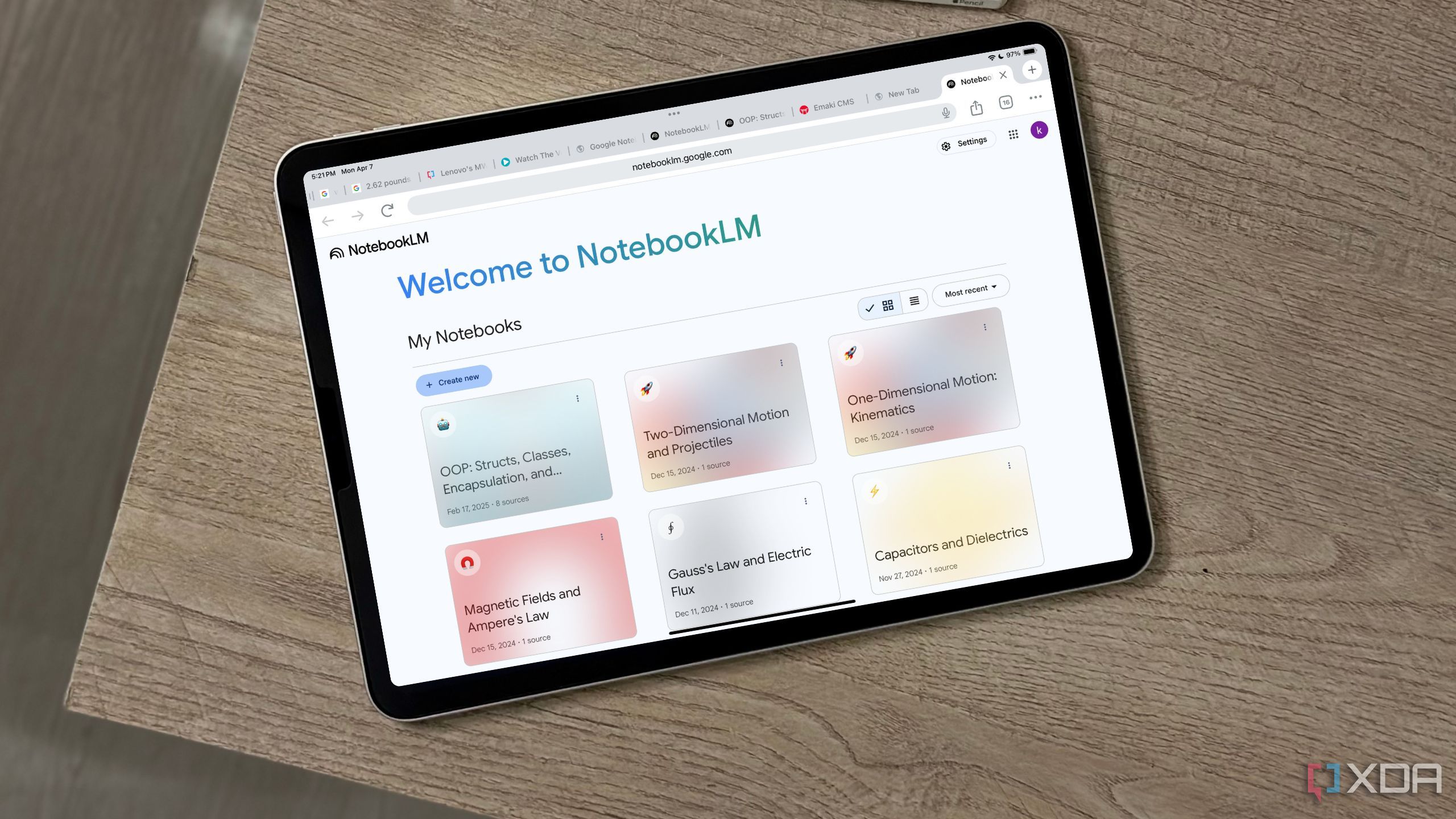
Related
4 productivity tricks I’ve learned after using NotebookLM since launch day
These simple yet powerful NotebookLM tricks have transformed my workflow.
With ElevenLabs, I found the experience much, much more enjoyable. While the podcast was being generated, music played in the background and different screens appeared like “we're getting your podcast ready,” “warming up the studio,” “sprinkling in some ‘umms'" and more.
The ElevenLabs podcast was, surprisingly, incredible. What I love about NotebookLM’s Audio Overviews is that they don’t sound robotic, and it was the same with the one ElevenLabs produced. It had human-like elements, sounded natural, and was engaging to listen to.
One major limitation is that you can only add one source to GenFM at a time. NotebookLM, though, lets you add multiple sources to a notebook, and the Audio Overview generated gives you an overview of all of them, and even includes insights about links across all of them. GenFM only lets you generate two podcasts a month for free, while NotebookLM's free plan lets you generate up to three Audio Overviews per day.
But all in all, ElevenReader’s GenFM output has all the elements I love about NotebookLM’s Audio Overviews, and I can see myself using it often (two times a month), especially as it gets better.
The Drive AI
Real answers, straight from your files
The Drive AI is an AI-powered document management tool which claims to be trusted by top organizations and universities, including Harvard, Yale, Stanford, and more.
And though the tool seems to be primarily designed to help you store and organize files, it has an option that lets you chat with any files you upload. The files you can upload include videos, audios, images, YouTube URLs and PDFs. You can then ask any questions about your files, and the tool will give you "AI answers grounded to your sources with citations" — just like NotebookLM!
The Drive AI also has a built-in AI writing assistant supported by various AI models, including GPT-4, Claude, and Gemini.
I uploaded a lecture slide from my programming class and first asked the AI, "What are the different types of programming methods?" It gave me a straightforward answer with citations. As promised, it pulls information from uploaded sources only. I then asked it what XDA was (which, of course, wasn't related to my document at all), and it said:
I am sorry, I cannot find the answer in the project named XDA.
What impressed me most about The Drive AI was that it suggested five different questions related directly to my sources, and these five questions refreshed every time you asked another query. To be fair, NotebookLM displays three related questions too, but the ones this tool displayed felt more descriptive.
Since The Drive AI has multi-modal capabilities, I can use different AI models to extract info from my documents, including GPT-4o, Claude 3.5 Sonnet, Gemini 1.5 Flash, DeepSeek R1, and more. NotebookLM, on the other hand, limits you to just Gemini models.
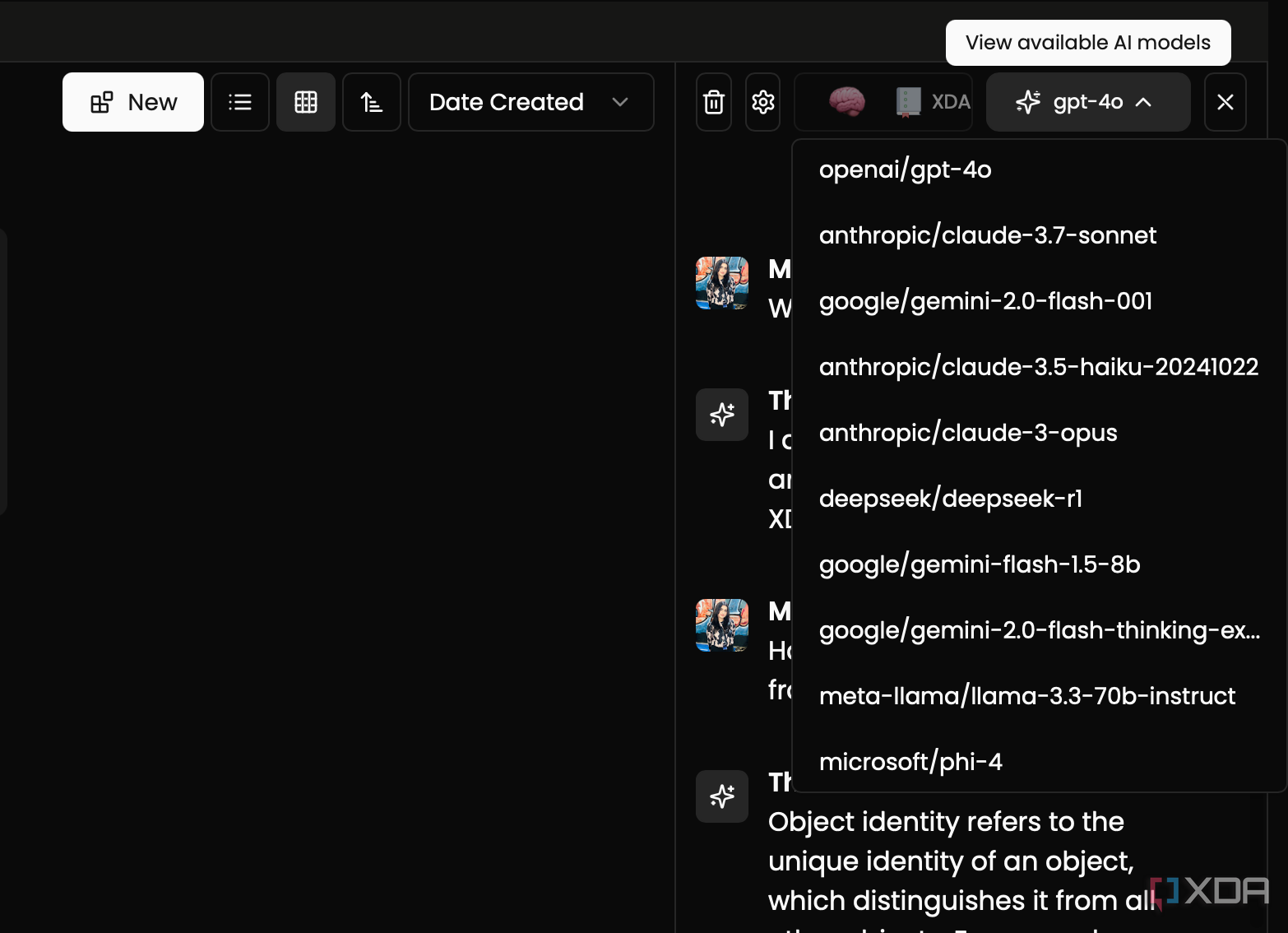
Frankly though, while that might matter to some people, it doesn’t really matter to me. I just want answers to my questions, and as long as a tool can do that, I’m content.
That said, The Drive AI only lets you ask five questions on the free plan, while NotebookLM gives you up to 50 chat queries. So, while I love the Drive’s thoughtful questions and the ability to switch between models, that five-query limit is definitely a bit of a drawback.
You win this round, NotebookLM
Despite how big of a NotebookLM fan I am, that doesn't mean I wouldn't consider switching if something more impressive came along. But the truth is, NotebookLM still doesn't have many real competitors. And the few that do exist only offer one standout feature or the other (except for Nouswise).
Though I do see myself using ElevenReader for podcasts often, NotebookLM offers a lot more features in one place. So, after giving them all a fair shot, it looks like I'll be sticking with NotebookLM for now.
.png)
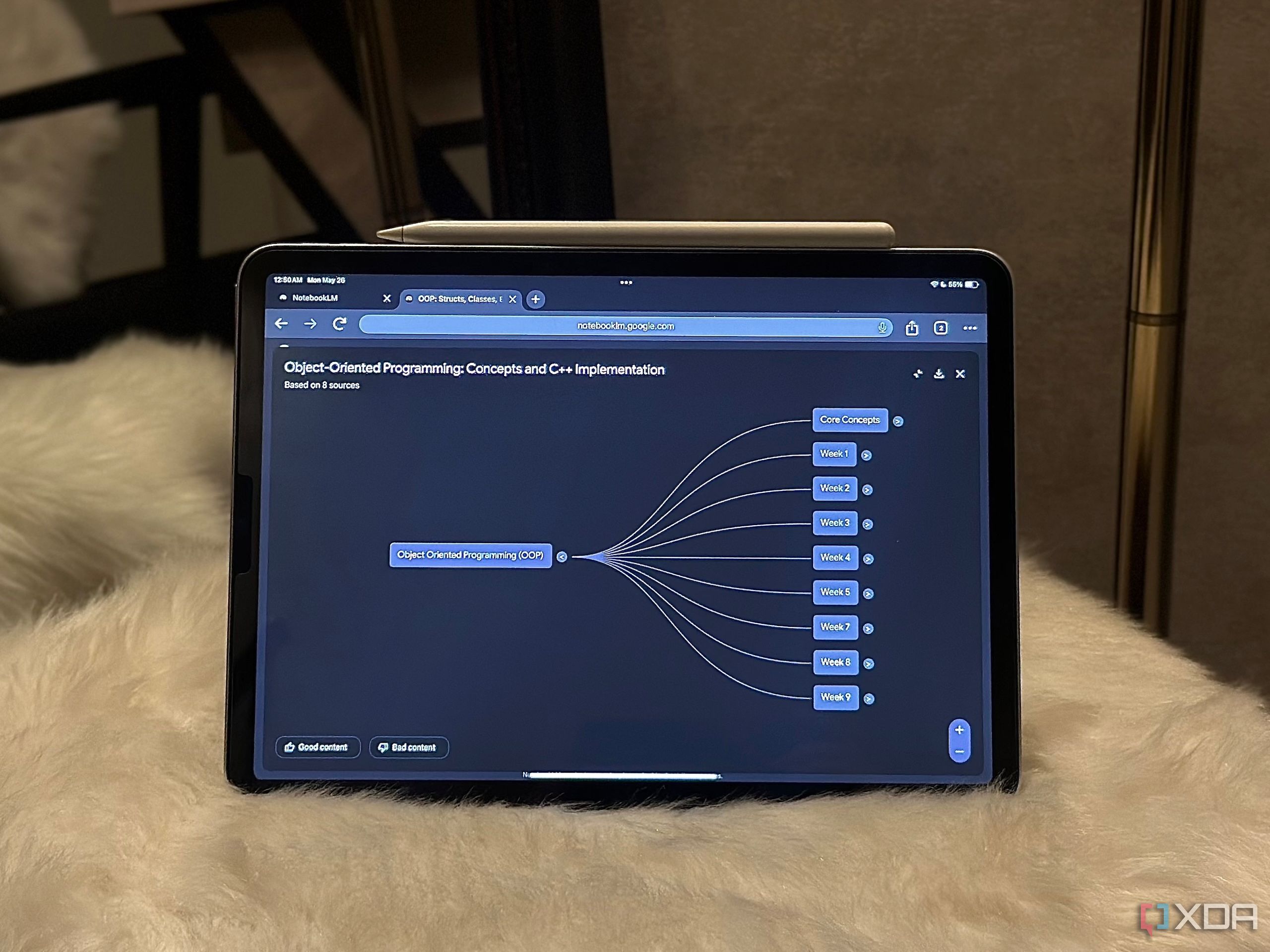
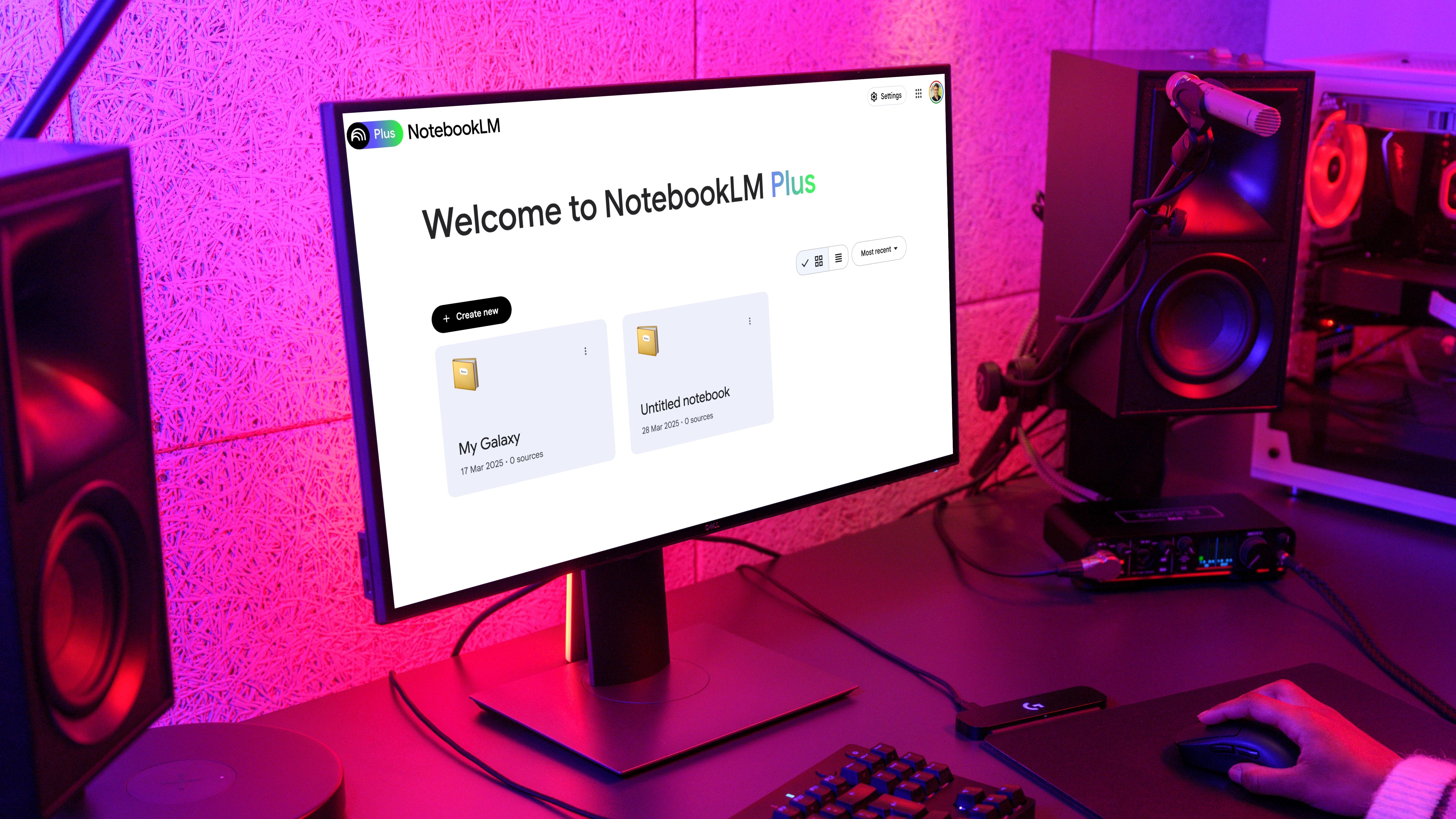
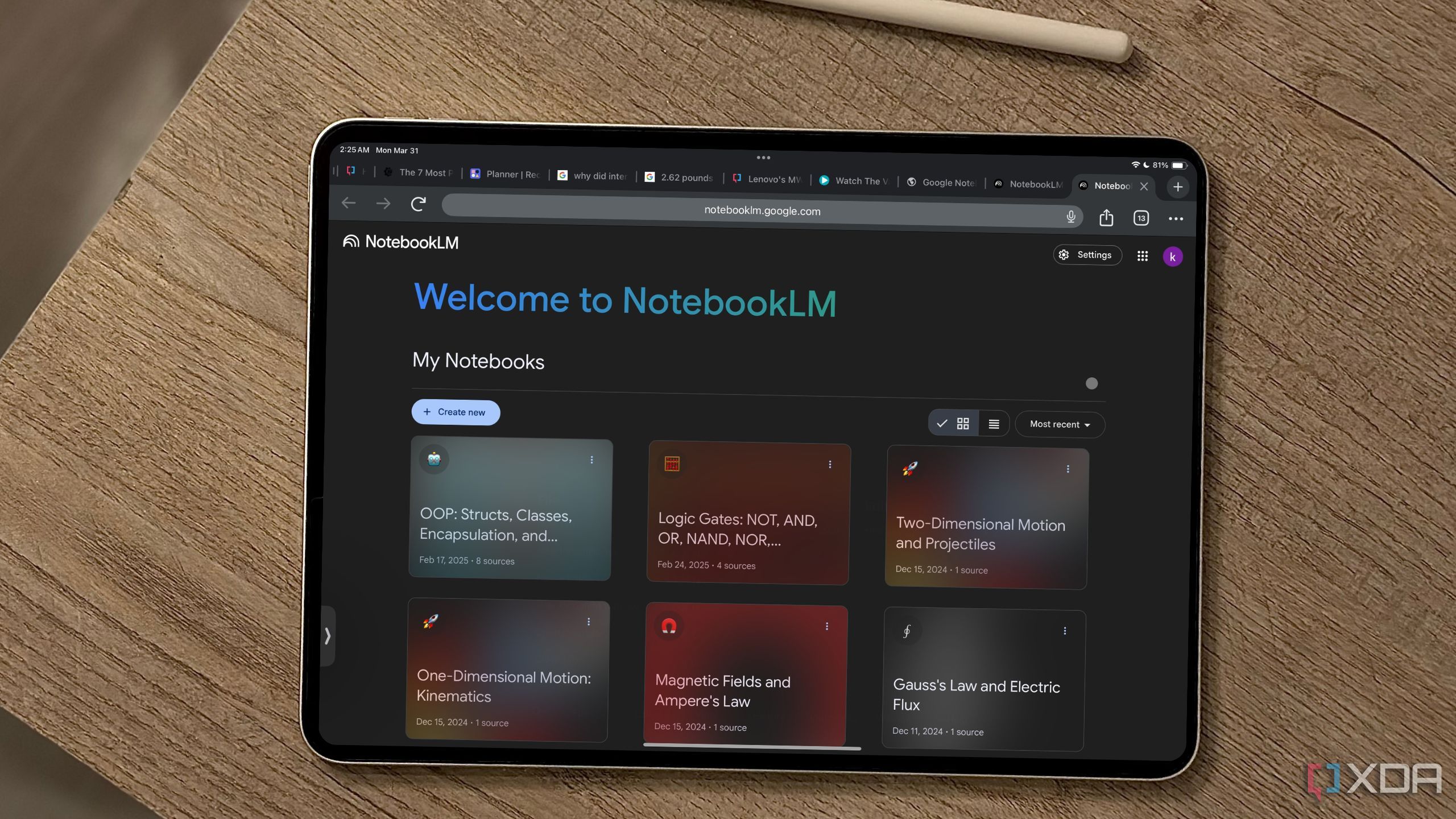
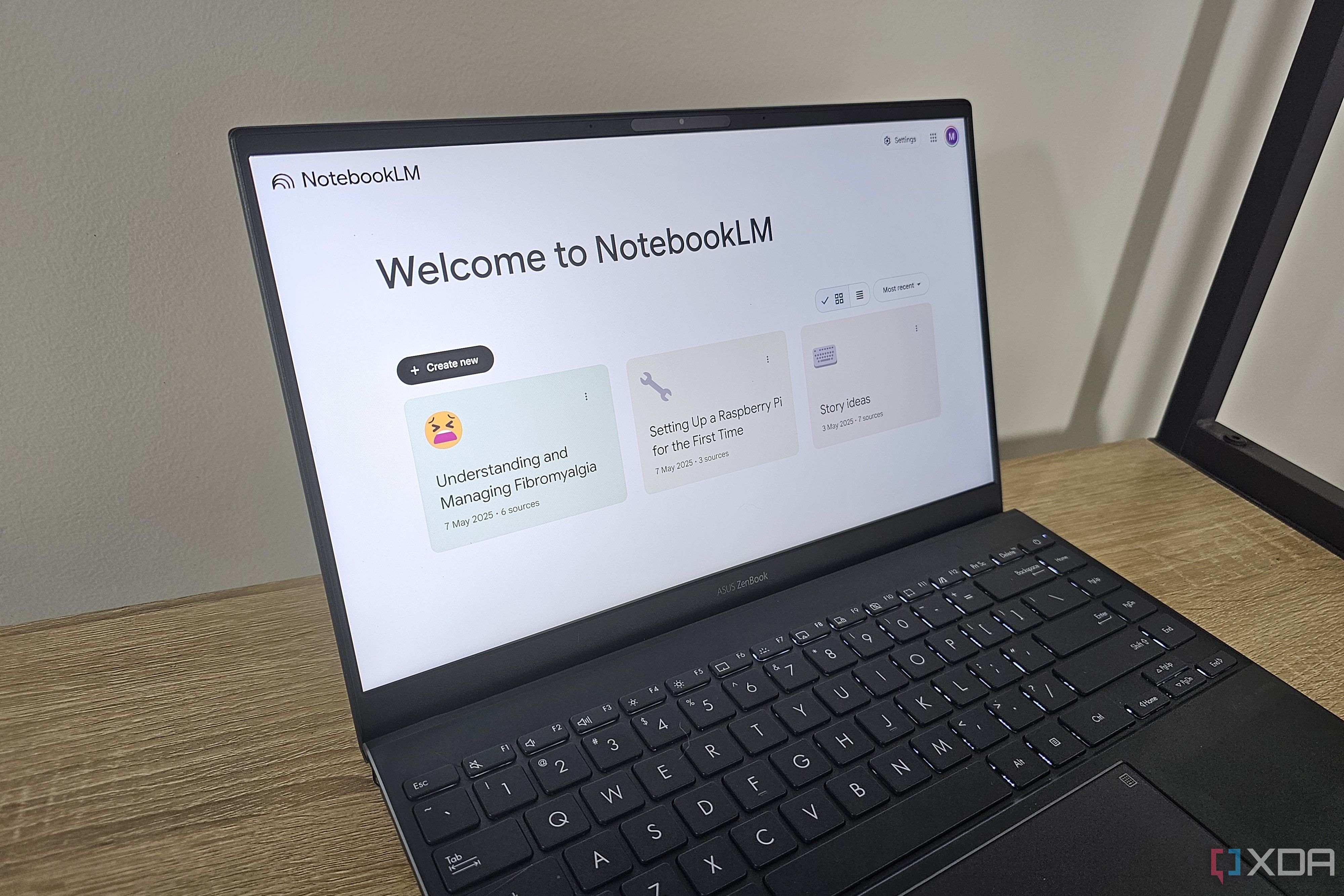










 English (US) ·
English (US) ·